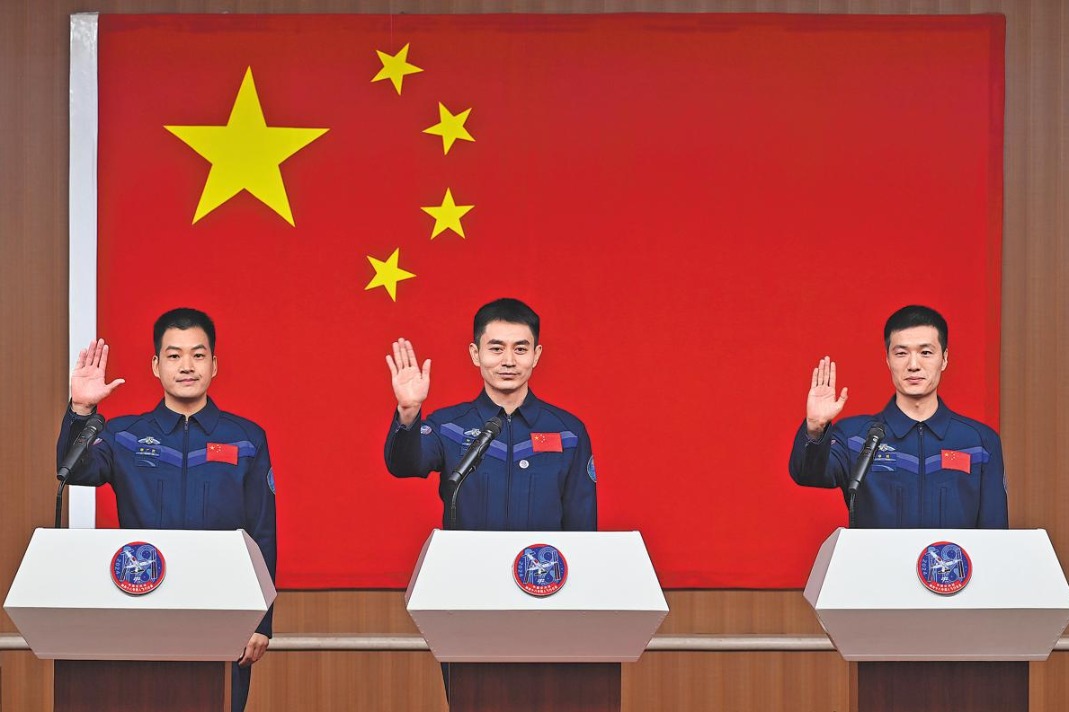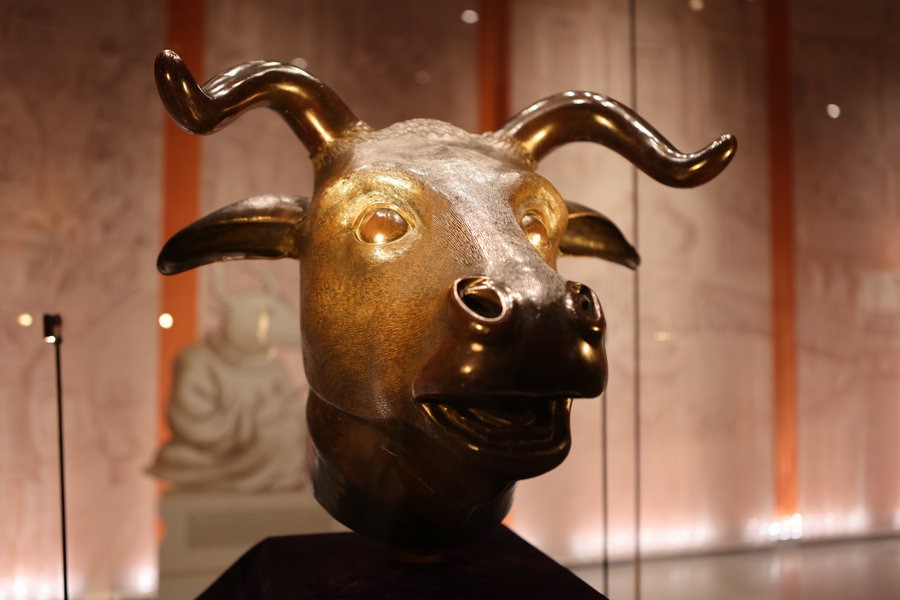Embracing humanism is China's right path

Scholar says China should embrace Confucianism and share these values with the world to establish peace
China needs to embrace humanism in order to realize a peaceful rise on the global stage, says Tu Weiming, director of the Institute for Advanced Humanistic Studies at Peking University.
Tu, who is also a senior fellow of Harvard University Asia Center, says China needs to be more tolerant of differences of opinion and to share rather than impose its values to convince the world that its emergence is not a threat.
| Tu Weiming, director of the Institute for Advanced Humanistic Studies at Peking University, says China needs to be more tolerant of differences of opinion. Cecily Liu / China Daily |
To achieve this, China needs to stand up to the test "that the so-called cultural China can be a model for harmonious existence".
"The message that China wants to convey to the rest of the world is not simply a peaceful rise in terms of economic strength and political power. (It is conveying) a cultural message," Tu says.
Born in 1940 in Kunming, Yunnan province, Tu developed an interest in Confucian values at a young age. After obtaining his undergraduate degree in Taiwan, Tu attained his master's and PhD degrees at Harvard University.
Tu became a distinguished scholar and gained fame for his proposal of spiritual humanism as a philosophical concept to help sustainable development.
He has previously taught at Princeton, Harvard Universities and the University of California, Berkeley. In 2010, he founded the Institute for Advanced Humanistic Studies at Peking University.
As China's economic might grows, so has its influence. Therefore, if the country is to rise as a peaceful power, it needs to facilitate a new world order that can be accepted by the major players of the new geopolitical context.

"Therefore the voice of China has to be deeply rooted in the fact that the Chinese civilization is not just a few decades old but has been continuously developing for 5,000 years."
For China to show compassion and inclusiveness, Tu suggests that the nation adopt the golden rule uttered by Confucius: "Don't do unto others what you don't want others to do unto you."
"It should also have a principal of humanity. It means, in order to establish myself, I help others establish themselves. In order to enlarge myself, I help others enlarge themselves," Tu says.
This process is not for China to look at more advanced states for inspiration and act in a way that these states would see as fitting, but to look toward less developed nations and gain their acceptance.
Tu says China has so far not achieved the confidence of a global power and the humanism required for sustainable development, which harkens back to China's collective memory of shame and humiliation in the Opium Wars.
The effect of this shame and humiliation has motivated China to modernize and prioritize economic and technological advancements.
"For China, since the Opium Wars, if you want to find one preoccupation, it is the quest for power. China was so marginalized, so humiliated by Western powers that China believed Westernization was the only path for its modernization."
This thinking fueled China's economic growth in recent decades, but more recently the sustainability of Western development has been questioned, as social and environmental problems gradually became serious to the extent the survival of human species is being debated.
The wider discussion over the Western model of development has led to a re-thinking within China about its own economic model, as exemplified by the fact that in 2013 the nation was no longer talking about GDP as the sole indicator of growth and focusing on other aspects of development.
"In 2013, China's political and intellectual elite wanted to understand modernization. (Now) it must include institutional reform in the political sense, social harmony, cultural development and ecological development as new parts of the conversation," Tu says.
The idea of nationalism is a concept Tu specifically believes is dangerous for China to learn from the Western style of development because it leads to unilateralism and can be a source of conflict.
Tu says the emergence of humanism as a part of enlightened thinking during the Renaissance greatly contributed to the Western style of development that we see today. Humanism, which emphasizes the values of human beings, has led to society's secularization.
This secularization also largely is characteristic of Chinese society today, though Tu believes China needs to develop an awe for religion in order to grow in a stable and peaceful manner.
Tu says this does not mean the Chinese people need to follow any particular religion, but they do have to respect values common to all religious traditions.
"Humanism re-emerges among all religious traditions - including caring for Earth, caring for the suffering of ordinary people and caring for the fragmentation of the world order, international warfare and violence," Tu says.
He says all spiritual traditions are deeply concerned about Earth, the land, the body and people. In practice, he says, it means we need to follow the right practice rather than the right doctrine. It also means each human being must care for other people.
Tu says these values were championed by Confucius. They are embodied by China's peaceful rise on the world stage, and China's overseas teaching institutes named after the philosopher.
Confucianism has much in common with other religions in that all cherish the values of being a humane and upright person.
"I think one concrete way (of developing spiritual humanism in China) is to develop a sense of reverence and awe, to appreciate the reverence for God, for Buddha, for our community, and even reverence for China's natural beauty," says Tu, who adds that such reverence leads to a realization of the meaning of life.
He says one way China can present a harmonious image to the world is to discuss its culture, which is a common thread among its people living in the country and beyond its borders.
On the global stage, Tu says the growth of the Confucius Institutes has been an example of China's sharing its culture and values, although he believes the current model can be improved with more participation from business and social communities so that the institutes are not simply seen as an arm of the Chinese government.
Established by the Chinese government in 2004 to promote Chinese language and culture abroad, Confucius Institutes are nonprofit organizations that have been integrated with Western academic institutions, including high schools and universities.
He says the values that China shares with the world must not strictly be centered on Chinese values, but universal values, such as the one taught by Confucianism.
Tu says he believes China should embrace the values of Confucianism and share these values with the world. He says China is now at a crossroads: While it must pursue its own unique path, that path cannot be exclusively Chinese.
"China cannot afford to be nationalistic. Rather, China should live up to its own cultural ideals to be cosmopolitan and spiritually humanistic," Tu says.
cecily.liu@chinadaily.com.cn
(China Daily Africa Weekly 01/30/2015 page32)
Today's Top News
- A path beyond the Thucydides trap for China, US
- Xi stresses building world-class military medical universities
- TikTok bill threatens to shut app out of US market
- Xi hails shared space progress
- Exhibitions show civilizations can coexist
- Chongqing urged to boost modernization































